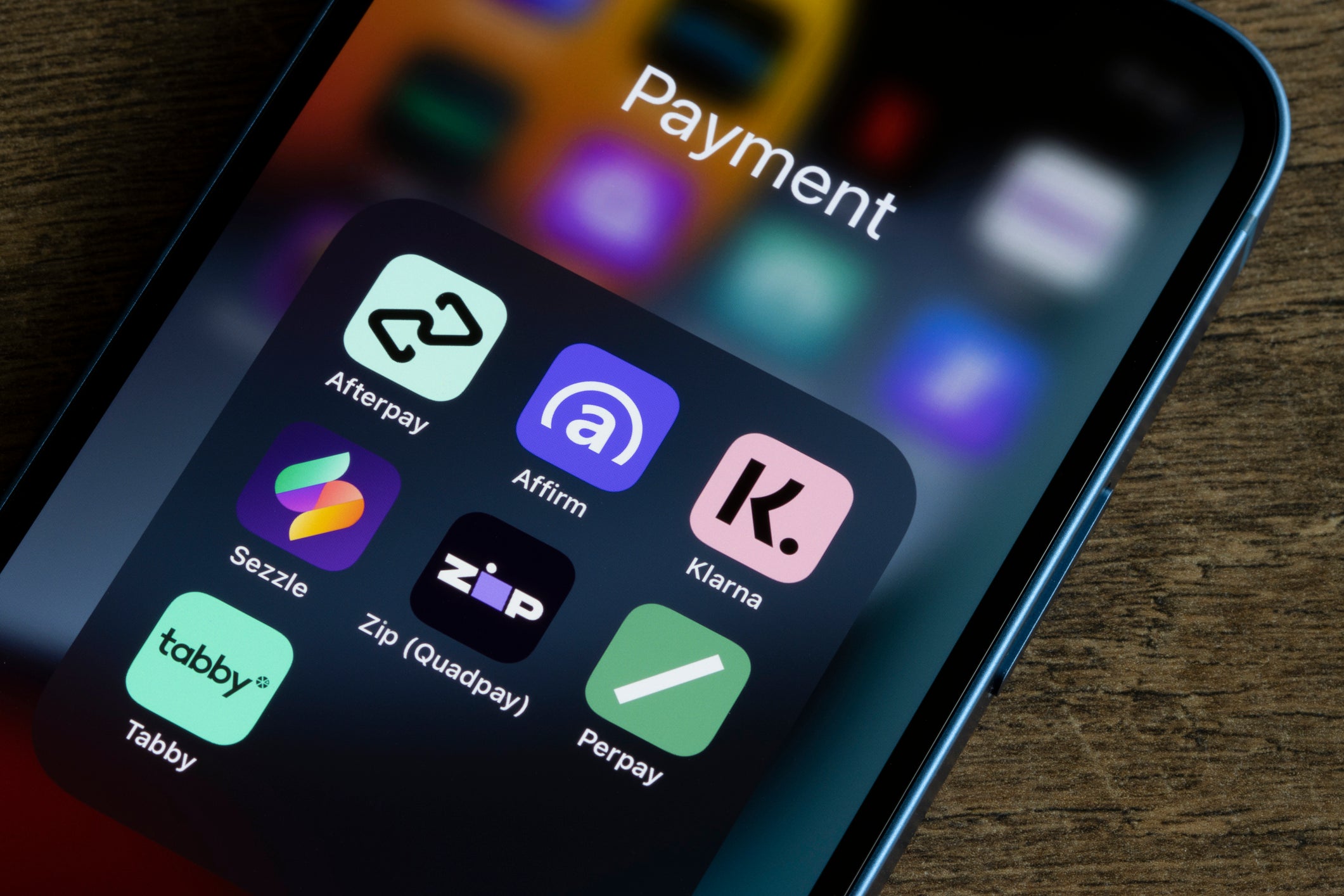Buy Now Pay Later is a potential personal finance timebomb as household budget squeeze tightens
Debt charities are worried that this seductive, interest-free product will prove highly appealing with Christmas looming but, says James Moore, this could lead to people facing nasty consequences


Christmas is coming and the goose is getting fat,
But in a cost of living crisis,
How do you pay for that?
It’s Klarna time! Klarna, or one of the other buy now pay later (BNPL) operators whose logos are proliferating at the nation’s checkouts.
We’ve had cost of living squeezes before. They have been a troubling feature of the British economy and labour market over the past couple of decades.
What is different this time is the scale and the breadth of the crisis. Households are getting hit from multiple directions. The prices of essentials are rising at a particularly rapid rate. Food-price inflation came in at 13.9 per cent in the most recent figures from researcher Kantar. Energy prices have been capped by the government, but they’re still running at double the level they were last year.
Which brings us to the nation’s annual festive blow-out, and how to pay for it.
Most Britons put a lot into Christmas and spend a great deal of money on it. But that cash isn’t going as far this year. Against that backdrop, BNPL would appear to offer a ready-made solution, particularly the “pay in three” product, which lets the customer spread the cost over three months, interest-free.
It is the latter that is the product’s key selling point and makes it seem harmless. An easy way to pay without the very obvious drawback of the high interest rates that come with credit cards or payday loans, which used to levy four-figure APRs until the sector had its wings clipped by regulation.
BNPL doesn’t look like a loan because of the interest-free aspect. But it is a loan, like any other. There are still consequences for people who find they can’t pay – potentially serious ones. It is also (still) unregulated.
Debt charities are worried. StepChange tells me its research from last year showed that more than a quarter (27 per cent) of people expected to use BNPL to cover their Christmas 2021 spending.
With the current cost of living crisis stretching budgets even further, it fears that the proportion of people using it this year could potentially be much higher.
“BNPL usage is often correlated with financial stress and, because Christmas might be a trigger for marketing, that could leave people at particular risk of being drawn in by appealing and convenient options to buy now, pay later, which is often interest-free,” says the charity’s head of media, Sue Anderson.
“However, all credit comes with inherent risks for the consumer and, since BNPL is not yet regulated, providers might not carry out effective affordability checks or prevent users from taking out multiple BNPL loans from different providers that could prove unaffordable overall.”
StepChange wants to see regulation brought in “as soon as possible”.
But the wheels of government move slowly. Under the previous economic secretary to the Treasury, John Glen, secondary legislation to facilitate oversight of this sector was not due until the middle of next year, to be followed by a Financial Conduct Authority (FCA) consultation. It is very hard to feel optimistic about even that, rather vague, timetable given the current tumult in government.
The FCA has been active in the meantime. It recently held a round table with BNPL providers to discuss upcoming regulation in which it called on them to do more to support borrowers in financial difficulty, including signposting to money guidance and debt advice.
It has written to them with warnings about advertising and secured changes to unfair and unclear terms in BNPL contracts, using powers granted to it under the Consumer Rights Act.
In June it wrote another letter to more than 3,500 lenders to remind them of the standards it wants them to meet against a backdrop of the increasing financial difficulties consumers face. BNPL providers were included to encourage these firms to provide their customers “with an appropriate level of care and support”.
This proactive approach is a welcome sign that the FCA has learned from incidents such as the collapse of London Capital & Finance, which marketed high-risk so-called mini-bonds to investors. Although these were unregulated at the time, the FCA nonetheless came under heavy and sustained fire for failing to intervene.
However, the fact that BNPL is unregulated inevitably limits the FCA’s room for manoeuvre.
There are those who contend that a crackdown would be the “nanny state” – a phrase in vogue again thanks to prime minister Liz Truss – unnecessarily beating up on a product that consumers value.
This is a libertarian argument that many will nonetheless find seductive – and not just the zealots who write for right-wing think tanks.
The trouble is that it ignores the way these products are designed. BNPL providers derive revenues, and finance their interest-free products, by charging retailers a commission. Retailers are happy to pay this because BNPL drives sales. It encourages people to spend more, and that is what they do. In the middle of a generational squeeze, the danger should be obvious to all bar those who refuse to see by dint of their ideology.
This is a potential new year personal finance bomb, and the fuse has been lit. If it doesn’t go off, great. I will happily admit to being wrong.
But what happens if it does? This could get very messy very quickly as the bills mount and the misery mounts with them.
No wonder StepChange is worried. It’s already busy, for obvious reasons. Imagine being on the front line of coping with this if the worst fears are realised.






Join our commenting forum
Join thought-provoking conversations, follow other Independent readers and see their replies
Comments